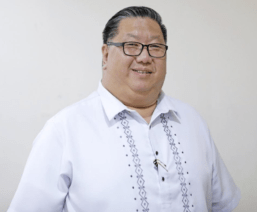
In Chinese tradition, Ghost Month falls on the seventh month of the lunar calendar, with the 2025 observance taking place from August 17 to September 14. It is believed that during this period, the spirits of ancestors and departed loved ones return to the realm of the living. Because of this, many Chinese avoid major undertakings—such as traveling, launching a business, or relocating to a new home—for fear that such actions might displease wandering spirits.
During the Ghost Month, many Filipinos are not only reminded of wandering spirits but are now discovering “ghost projects” that continue to haunt the nation. This became especially evident after widespread flooding exposed the futility of certain flood control projects. In his State of the Nation Address (SONA), President Ferdinand R. Marcos Jr. strongly rebuked contractors and their patrons for wasting public funds on such fraudulent undertakings, declaring with frustration, “Mahiya naman kayo.”
After his State of the Nation Address, the President exposed alarming irregularities in the use of public funds for flood control. Out of the PHP545 billion released for these projects since July 2022, roughly PHP100 billion—or about 20 percent—was funneled to just 15 contractors, with five firms cornering projects nationwide. The President announced that a full audit would be conducted to investigate these questionable allocations, citing an initial review of data from the Department of Public Works and Highways (DPWH). It was later revealed that from 2022 to 2025, flood control projects were allocated an enormous budget exceeding PHP1 trillion.
As revelations of ghost projects continue to surface, the media—joined by vigilant netizens—have taken on the role of “ghost hunters,” exposing the breadth of corruption in flood control projects.
The issue extends beyond mere ghost projects. Many flood control works are either poorly built or deliberately left unfinished, yet astonishingly declared as “completed” on paper. This is not mere incompetence—it reeks of a well-entrenched racket, a collusion among agencies and contractors that thrives on siphoning off public funds. Such systemic corruption turns supposed safeguards against disaster into disasters themselves.
In various parts of the country where flood control projects were implemented, this has become a source of flooding, inundating areas such as farms and houses, and creating havoc in the lives, livelihoods, and properties of residents. Some localities that are not even flood-prone have nonetheless received flood control projects worth billions of pesos, raising serious questions about misplaced priorities and corruption. The President’s discovery of this massive corruption highlights the pervasive nature of corruption.
One positive outcome of the President’s exposé is that communities are now openly discussing unfinished or even non-existent flood control projects in their areas. Once ignored or whispered, these topics are now part of a national conversation on accountability. Local government units (LGUs), many of which were never consulted by the DPWH, are beginning to push back—especially as they witness firsthand how uncoordinated projects have worsened flooding in their jurisdictions. This renewed vigilance from both citizens and LGUs marks an important step in reclaiming transparency and ensuring that public funds are used for genuine, effective flood mitigation.
In Quezon City, Mayor Joy Belmonte disclosed that more than 141 flood control projects undertaken by the DPWH were implemented without coordination with the local government. Residents have even reported that the construction of these projects has exacerbated flooding in certain areas. To address this, the city government has begun reviewing the scope of work for each project to determine whether the infrastructure meets quality standards and complies with contract provisions and the city master plan. Beyond the initial report of 141 questionable projects, the local government—working with District Action Officers and barangay leaders—is now verifying additional projects. The active involvement of barangays is crucial, as they are in the best position to confirm whether these flood control structures are truly completed, properly built, and capable of protecting communities from the worsening floods.
The Quezon City government is now replicating its initiative nationwide, with a focus on identifying abandoned, unfinished, and substandard flood control projects. President Marcos has called on the public to take an active role in exposing massive corruption, urging citizens to hold accountable the contractors and officials behind these fraudulent schemes.
This nationwide mobilization marks a significant shift, transforming communities from passive victims of flooding into active watchdogs against those who profit from their suffering.
It is astounding how contractors have been able to successfully complete projects without any oversight. How can an infrastructure project, supposedly backed by complete documents, pass unnoticed by both the community and the government’s auditing system? Such brazenness suggests a culture of impunity—contractors so confident in their scheme that they assumed the government and the people would remain silent while they plundered public funds.
There must be accountability for the irregularities exposed by the president and now brought to light by the people themselves. While some politicians are attempting to distance themselves from these anomalies, public pressure is mounting. Citizens and advocacy groups are calling for a fraud audit or the creation of an independent investigative body to uncover the truth and ensure that those responsible are held to account.
Justice cannot be selective—both contractors and public officials who enabled these schemes must face consequences.
I am reminded of a decade ago, when large-scale livelihood projects—later revealed to be nonexistent—shook the government and implicated several legislators and government officials. That scandal triggered a nationwide outcry, and many of those involved were eventually found guilty. The present situation demands the same, if not greater, resolve: to confront corruption head-on and ensure that history does not simply repeat itself.



